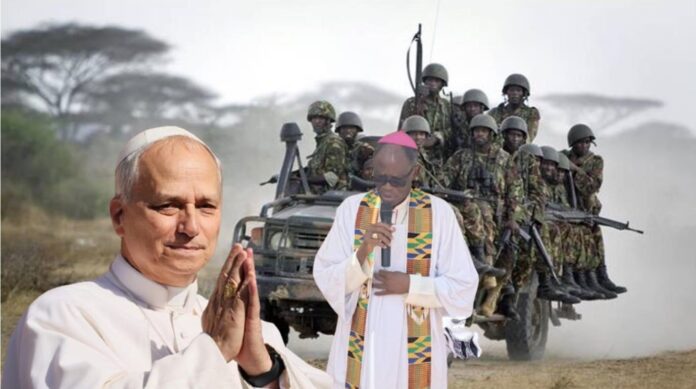
The Navrongo-Bolgatanga Diocese of the Catholic Church has come up with nine pleas aimed at restoring peace in Bawku as the devastating flame of a years-long chieftaincy conflict widens its violent reach to boarding schools in northern Ghana.
The pleas, contained in a press release signed by the Bishop of the diocese, Most Rev. Alfred Agyenta, are directed at the Government of Ghana, the security agencies, the Ghana Education Service (GES) and traditional authorities among other stakeholders.
But before making those appeals, the diocese sorrowed over the lives of civilians and security personnel lost so far, particularly the boarding students shot and killed recently while asleep, in connection with the conflict.

It also expressed grief, while mourning with the families of the victims, over the destruction the conflict had done to property and the disruption it had caused to provision of such essential services as healthcare and education in the Upper East and North East regions that fall under the diocese.
“These happenings underscore the worsening scope and intensity of the conflict. Additionally, the gruesome murder of two individuals in Asawase (Ashanti Region) allegedly linked to the Bawku conflict signals the escalation of the violence beyond the diocese.
“These attacks have sown fear, deepened hopelessness and derailed socio-economic activities in already-vulnerable communities. This situation makes the fight against poverty and underdevelopment in the North East and Upper East regions more challenging,” said the diocese, its words mixed with ‘tears’ in the release.

The nine appeals
The diocese, in its release, hailed the joint peace efforts being made by the government and the 16th King of Ashanti, Otumfuo Osei Tutu II, and commended the feuding parties for showing signs of consensus to end the conflict.
But it emphasised the need to summon “urgent drastic measures with coordinated efforts and sustained action” into the restive picture “to restore calm and enable long-term development” thrive in the violence-plagued area.
It made an appeal to the government to, as a major stakeholder, take what it called decisive and comprehensive measures to “restore peace in the affected areas and create a conducive environment for learning in schools”.

The diocese entreated the security agencies to exhibit the highest level of professionalism as they maintained law and order in the conflict-fractured zones and implored the GES to respond without delay anytime it received early signs of tensions to avert escalations.
“The Ghana Education Service should, as a matter of urgency, build the capacities of key staff to identify, monitor and respond to early warning signals in their schools.
“Psychosocial support should be given to key public service staff to enable these staff to continue to deliver services to affected persons within the conflict zone,” it added.

Making the fifth appeal, the diocese urged traditional authorities in the affected communities to demonstrate their resilience in conflict resolution and management. It said such resilience was rather healing than destructive.
The diocese went on to plead with civil society organisations and peace actors to team up in promoting social cohesion, peaceful co-existence and security for all people in the two affected regions.
It further called on the National Peace Council (NPC) to create the needed environment for engagement and trust-building among the feuding parties and begged religious leaders to pray “earnestly” for peace to prevail in Bawku and all other conflict-troubled areas in the country.
Lastly, the diocese asked the parties involved in the Bawku conflict to adopt non-violent ways such as sticking to the ongoing mediation process led by Otumfuo Osei Tutu II in resolving it.

The Catholic Church and some other faith-based organisations have initiated and implemented several projects to improve the lives of the people in the two regions over the decades.
The release, distributed by the Media and Communications Officer of the Navrongo-Bolgatanga Catholic Diocesan Development Organisation (NABOCADO), Moses Apana Apobona, is also copied to key government organs.
They include: the Upper East Regional Coordinating Council, the North East Regional Coordinating Council, the National Security Council, the Ministry of Defence and the Ministry of the Interior.
Source: Edward Adeti/Media Without Borders/mwbonline.org/Ghana








